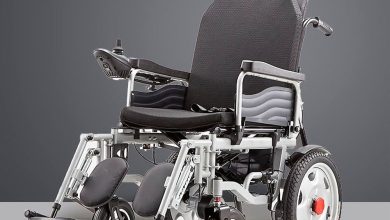
Can I Avoid Paying the OASDI Tax?
Can I Avoid Paying the OASDI Tax? No, for the most part. If you complete IRS Form 4029, Application for Exemption from Social Security and Medicare Taxes and Exemption from Benefits, and the Internal Revenue Service agrees with your case, you may be allowed to avoid paying the OASDI tax.
If you belong to a qualified religious group, you may be able to avoid paying. This is, however, extremely unusual. Both you and your employer must be members of the religious group, which must have been in continuous existence since or before December 31, 1950, among other requirements. Some non-resident aliens may be exempt from paying the OASDI tax (although most do). Employees of foreign governments may be exempt.
But for the vast majority of people reading this, it’s a foregone conclusion. It is you who has to pay for it. But, at a minimum, we’ll pay you back once you start getting your Social Security checks.
Understanding the Old Age, Survivorship and Disability Insurance Program (OASDI)
The United States Social Security program is the largest such system in the world, as well as the largest expenditure in the federal budget, costing an estimated $1.2 trillion in 2021.
According to the Social Security Administration, almost nine out of ten people over the age of 65 receive Social Security (SSA) benefits. Social Security calculates your AIME (Average Indexed Monthly Earnings) for the 35 years in which you earned the most.
The Social Security Act, signed by President Franklin D. Roosevelt on August 14, 1935, when the United States was in the midst of the Great Depression, introduced the program.
The program has expanded dramatically over the years, paralleling the growth of the US population and economy. In 1940, about 222,000 people received a monthly benefit of $22.60 on average. By the end of 2020, that number would have risen to about 70 million. The average monthly benefit for 2021 is $1,543.
Payroll tax in OASDI
Payments to qualified individuals are paid with OASDI taxes, which are government-collected payroll taxes known as FICA taxes (short for Federal Insurance Contributions Act) and SECA taxes (short for Self-Employed Contributions Act). ). In 2021, the Social Security tax rate for employees is 6.2 percent, while the self-employed pay 12.4 percent.
These earnings are held in two trust funds:
- Trust Fund for Old Age and Survivorship Insurance (ASI) for Retirement
- The Disability Insurance (DI) Trust Fund is a trust fund for disability insurance.
These trust funds award profits and invest any remaining profits.
The amount of annual earnings on which you must pay Social Security tax is limited. In 2021, the maximum taxable earnings are $142,800.
Also Read: TEXAS SMALL BUSINESS GRANTS: Top Tips for Becoming a Recipient
Criteria for the OASDI Program
Individuals who meet the specified criteria are eligible for OASDI program benefits. The money is paid to eligible people age 62 and older for old-age payments. The full retirement age varies by year of birth and is 67 for everyone born in 1960 or later. Due to delayed retirement credits, qualified individuals who wait until age 70 (but no later) to start receiving benefits may get higher maximum payments.
Payments are calculated using people’s earnings when they were of working age. Survivor payments are paid to the surviving spouses of qualifying children of deceased or retired employees. Disability payments are paid to eligible individuals who are no longer able to engage in substantially gainful activity and meet other conditions.
A worker must be fully insured to be eligible for retirement benefits. By accruing credits (also known as quarters) of coverage, a worker can be fully covered. Credits or quarters are earned based on the number of covered wages earned during a given period. In 2021, a worker will receive a quarter of coverage for every $1,470 earned. The monetary value is indexed for inflation every few years. A worker can earn up to four credits or quarters of coverage each year, with a total of 40 credits required to be eligible for benefits.


